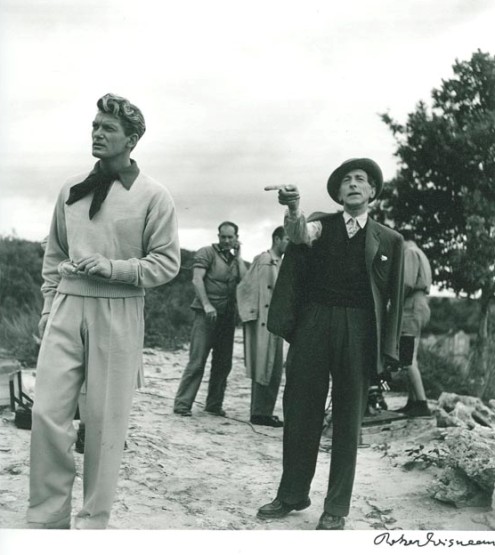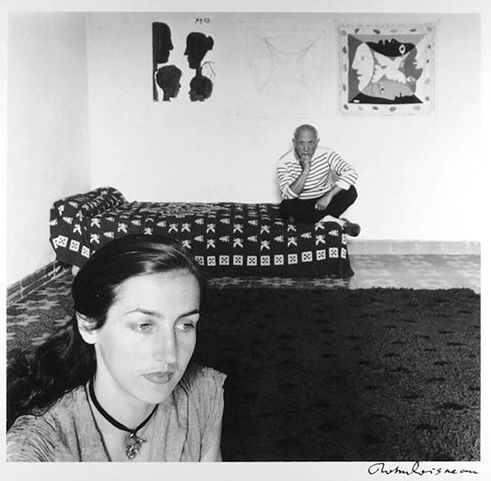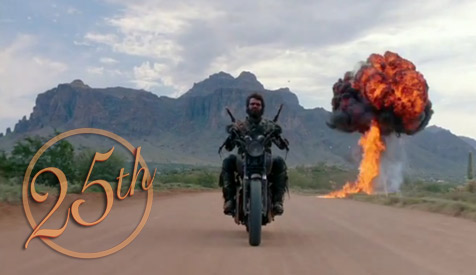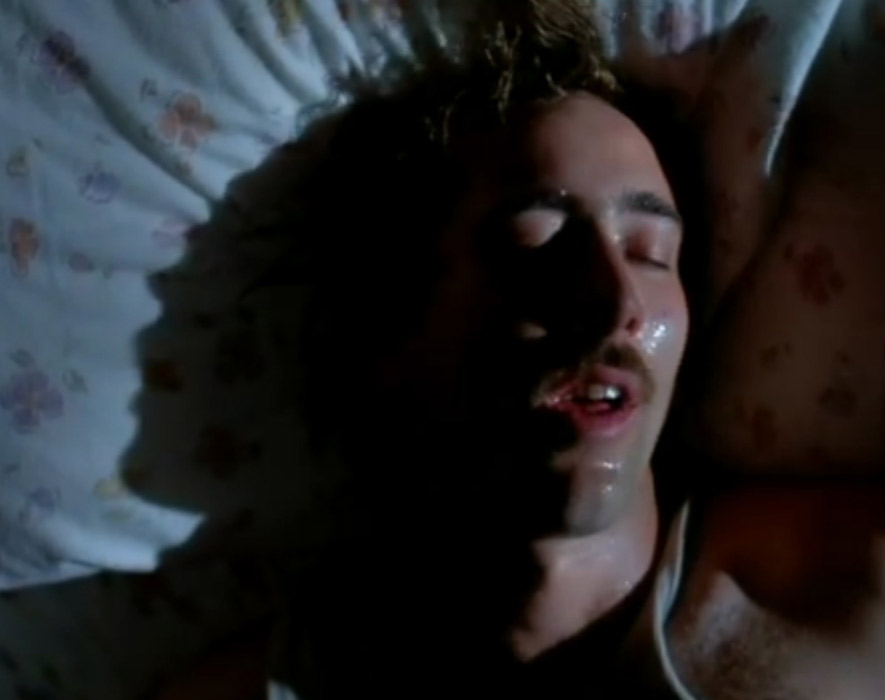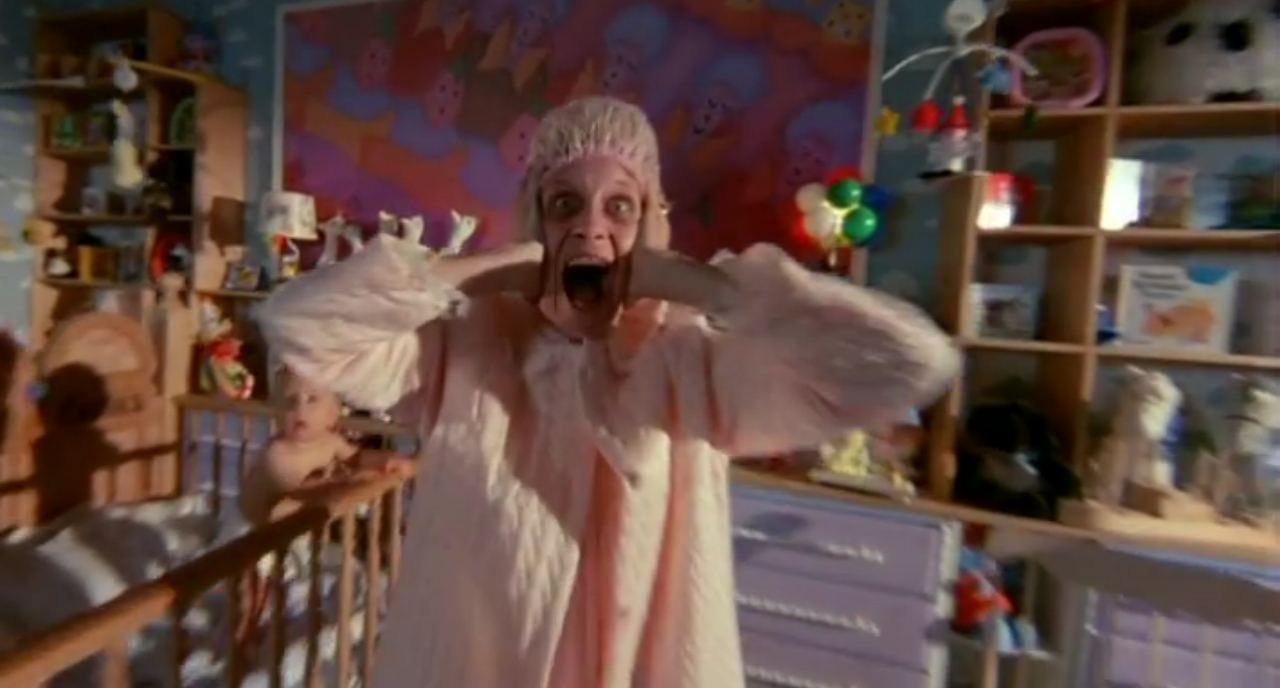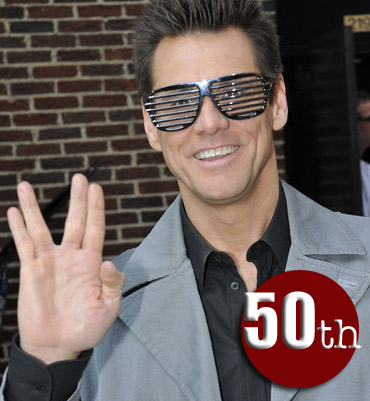"Titanic" Times Three. And Forever.
 Sunday, April 15, 2012 at 9:24PM
Sunday, April 15, 2012 at 9:24PM I had grand plans for the Titanic centennial, plans filled with a supersize hubris not unlike the power players at the White Star Lines albeit without the deadly consequences. It would be the biggest boldest blog post ever and would compare every last detail of all film versions of Titanic from costuming to art direction to special effects to young loves lost in the icy waters. Film Experience readers would feel as if they'd won the lottery for a first class ticket, no slumming in steerage required! But before I drive this analogy into an uncomfortably tone deaf iceberg moment -- like the one James Cameron collided with when he mixed "King of the World" bragging with that moment of silence for a 1517 souls lost on the tragic night -- I will stop and just get on with it. Picture time!
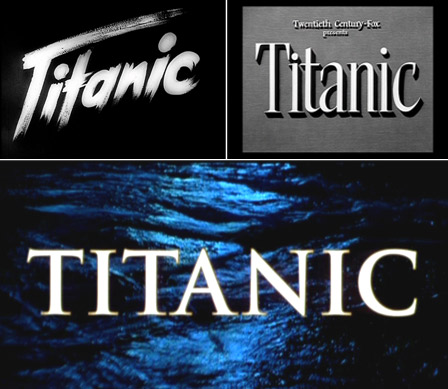 Titanic (1943), Titanic (1953), and Titanic (1997)
Titanic (1943), Titanic (1953), and Titanic (1997)
Here is a brief visual history of the Titanic sinking via the greatest of all art forms, The Movies. All images are culled from films named Titanic directed by Germany's Herbert Selpin, the Romanian Hollywood success Jean Negulesco, and Canada's box office colossus James Cameron in 1943, 1953 and 1997. These are hardly the only films about the infamous oceanic disaster even if you exclude the filmed narratives where the disaster is only a minor plot point in everything from one of the earliest best picture winners Cavalcade (1933) to today's popular British series Downton Abbey (2010-)
The three Titanics begin very differently... before settling in as narrative siblings.
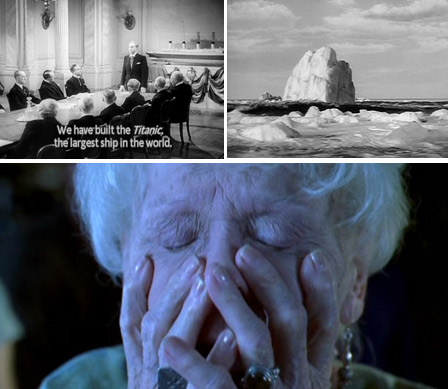
The German film begins with a board meaning at White Star Line staging the event as a cautionary tale about big business. The 1953 picture begins with an eery human-free depiction of the forming of an iceberg that Malick might love (though it instantly flips back to a stuffy 50s drama). The 1997 blockbuster begins with a contemporary dive with an explorer (Bill Paxton) and an old survivor Rose (Gloria Stuart) about to reminisce... cue three hour flashback!!!
After that they're much more similar. We get...



